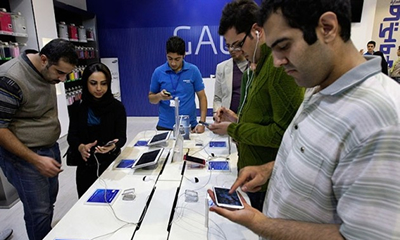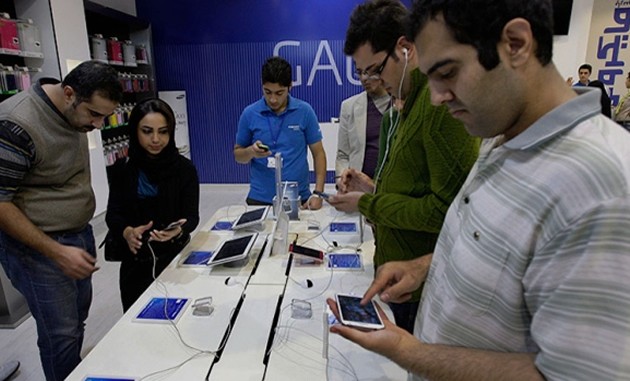For the first time since the 1990s, the U.S. government has lifted a ban on the export of consumer mobile devices and mobile software to Iran, a country of nearly 80 million people. The U.S.’s decision comes just a day after Canada also decided to permit exports of such products.
 The products, software, and services now allowed for export to Iran include mobile phones, personal digital assistants, tablets, laptops, personal desktop computers, satellite phones, consumer network equipment, anti-tracking software, anti-censorship tools, virtual private networks, proxy tools and voice-over-IP and video chat tools.
The products, software, and services now allowed for export to Iran include mobile phones, personal digital assistants, tablets, laptops, personal desktop computers, satellite phones, consumer network equipment, anti-tracking software, anti-censorship tools, virtual private networks, proxy tools and voice-over-IP and video chat tools.
The lifting of the U.S. ban was announced late Thursday by the U.S. Department of the Treasury, which worked on the reversal in consultation with the Department of State. Both the U.S. and Canada governments claim that the new licenses aim to empower the Iranian people with better access to information.
“As the Iranian government attempts to silence its people by cutting off their communication with each other and the rest of the world, the United States will continue to take action to help the Iranian people exercise their universal human rights, including the right to freedom of expression,” according to a statement by the two U.S. departments.
“Canada’s new sanctions include exemptions for technologies that protect Iranians online and help them break through the regime’s curtain of propaganda,” said a release from the Canadian government.
U.S. exports of the devices to Iran had been blocked since the 1990s, due to international sanctions over Iran’s disputed nuclear program and other politically charged issues. Starting in 2006, even stricter sanctions have been imposed on Iran both by United Nations and its member states. The sanctions have collapsed the Iranian currency, which fallen to 35,000 rials to the dollar, nearly triple the rate of last year.
Some political observers believe that the lifting of the ban by Canada and the U.S. was timed to influence the outcome of Iran’s national elections to take place in June. If more of Iran’s political activists have access to mobile devices and services, they can more easily communicate with each other and with the outside world.
Even during the export sanctions, many Iranians were able to buy the latest devices and software through the black market.
The export of electronics equipment to the Iranian government or to any individual or entity on a Specially Designated Nationals list will remain prohibited in both the U.S. and Canada.
On the flip side, Korea’s Samsung last week imposed a ban on all mobile applications in its Persian-language online store for Iran users. The ban began May 22. In an e-mail sent to its smartphone and tablet users, Samsung said that “legal barriers” prevented it from providing users with continued access to its store. However, some view the ban instead as part of South Korea’s participation in international sanctions over Iran’s disputed nuclear program.
Finnish mobile phone pioneer Nokia stopped its services in Iran last year.





